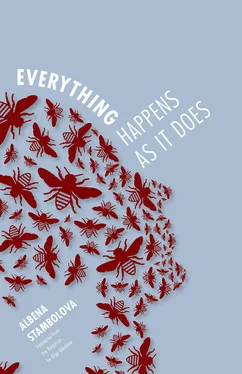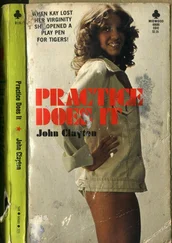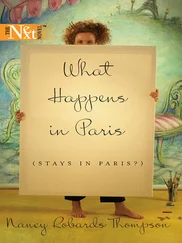At some point he caught sight of his chauffeur, who was walking with a wet towel around his head and a glass in his hand. The chauffeur smiled apologetically and Mr. V. responded with a shrug of his shoulders. War is war, nothing to be done about that.
Philip settled for one of the crowded bars where he was a regular. He was known by a name different from his real one, like most people in the bar. Girls flew by his table, stopping for a moment or two — Tonny, Rallie, Bunny, Stephie — all of them second and third-year students at the university. They worked as waitresses. Girls from “the countryside” who lived together in a rented apartment in the city, in the neighborhood of Suhata Reka. Their native towns, Radomir, Pavlikeni, and Pleven, were brought together in Suhata Reka by what appeared to be a distortion of geographical space, but the girls dealt with it fearlessly. Philip knew that they juggled their shifts and replaced one another when classes conflicted with their working hours. He knew that they rarely got enough sleep and often starved. That they fought, insulted each other, and thought of separating. Every now and then he would see traces of things he was hesitant to interpret. They called him Doc and would talk to him for hours. Sometimes they told him incredible stories, and he couldn’t tell whether the stories were true, or taken from a movie. He knew for a fact, however, that Rallie was a drug addict and he avoided saying anything, afraid to widen the generation gap between them. He felt ashamed for his lack of courage. Once, he brought a female friend to the bar and the girls were delighted. They liked the woman very much and even met with them after work to go to some nightclub together.
He wondered how these kids could live such a life without making a drama out of it. They managed to slip the tragic moments somewhere in between the day’s passage into night. They knew everyone and, as far as he was concerned, they seemed to accept his presence as the most natural thing in the world. Philip could not wrap his head around it. They felt for him when he was suffering, but their grief, if that’s what it was, resembled weariness more than anything else. Then they would tell him about the most dreadful things without batting an eyelash, and he didn’t know whether to believe them or not. And what were they telling their parents? That they were working to pay their way through college, so that the whole family, down to distant cousins, would be proud? Probably all of them had been A-students in their town high schools. Could you call it work, this painful shuttling back and forth between the tables and the bar, wearing tight black skirts, with their little faces white like moonlight? Were these girls the playthings of some inexorable reality, or were they themselves playing, trying out roles to see if they were good for this movie or another? If a disaster was just a matter of time?
Philip turned these questions over and over in his mind like coffee beans in a grinder. At first they would spill with a deafening sound, then they would patter around, lullingly, until ground to a fine powder that covered everything inside. Then the machine would stop turning. Until the next time.
Meanwhile, he kept ordering drinks, knowing that sooner or later he would reach his Rasputin phase, when he would buy a round for everybody and suggest moving on to the next bar.
Why hadn’t they gone back home to their parents? All four of them were here, working till five o’clock in the morning. Well, on the other hand, here too were fir branches with tinsel and bells; the snow was shoveled from the sidewalk, the glasses were sliding over the counter, and no one seemed particularly lonely. Rallie moved about like a sleepwalker and burst into laughter from time to time. The other girls were carrying glasses left and right. At one moment, a young woman climbed onto the bar and her shoes flew off toward the tables. People started dancing and clapping. Philip looked around for any of “his” girls and waved his empty glass to Stephie. She brought him another Finlandia vodka, her eyes attentive. The music was blaring in the pulsing reddish light. Smoking and drinking, mere tricks in everyday life, now created a festive orgy of unity.
Then Rallie dropped to the floor and women’s voices screamed for a doctor. Philip jumped over some tables, wrapped her in his coat and took her out into the snow, remembering that, luckily, his car was there. As he drove off, he could see the black silhouettes of a group of youngsters. He imagined how, once the car disappeared from sight, they would go back into the bar and continue with their revelry.
Rallie raised her head from the passenger seat next to him, murmured something, and fell back. Philip stopped the car and turned toward her. He could smell urine and felt a surge of panic. For a moment he considered driving her to his place and taking care of her himself. But he started the car and headed for the ER at Pirogov Hospital.
Nothing could turn back time. Madame V. wished it wasn’t Christmas. She stared at the closed door of the oven, not knowing what to think. She could not remember ever feeling so paralyzed and having to sit there and think. And that was precisely what she believed she was doing. Thinking.
She could not call any friends without losing face, but also, it seemed highly unlikely that her husband would be with any of them. So she called the police and the hospitals. Her last conversation was with a general, an acquaintance, who promised he would investigate the matter personally.
Hungry, she remained seated at the linen-covered table. For the first time in her life she had no idea how to get angry. Her two Yorkshire terriers, hopeful for a bite, ran to her every now and then but she would not budge, crushed under her own weight.
It was the first time she had felt her own weight.
At Fanny’s, the unfrozen house continued to thaw. As if by magic, everyone appeared happy and content, everyone was able to find a comfortable spot where pleasant things happened to them. Even the cat Pavoné had settled in front of the fire, in the place of Mr. V., and was now relishing the heat like only a cat could. The music, the movement of bodies and voices fit together like Lego pieces following instructions by themselves.
Margarita was peering at the people and things around her, gripped by a new feeling she was aware she could never put into words. But she was not worried about this. After all, she and words travelled their journeys separately. She was sitting, pensively sipping her glass of champagne, knowing that this thing here, this evening, this night… was all well the way it was. There was no fear, there was no reason to be doing anything different from what was being done. What exactly was being done, Margarita did not know, and she did not care to find out. It wasn’t the first time Valentin had taken her to a friend’s party. Margarita remembered all such occasions.
That was why, in fact, she was feeling confused. And the futility of her confusion was about to make her run away, when suddenly something occurred to her.
She looked at a lit candle in front of her. An ordinary white candle burning quietly in the neck of a bottle. Once, they had gone to the sea and celebrated somebody’s birthday at the beach. There were dozens of bottles like this, with candles in them, in a row by the water’s edge, stuck in the wet sand, which was gradually swallowing them from below. It had felt good, the soft surf, the still, gentle air with no wind, and the row of candles that were diminishing from both ends. The others were swimming in the sea or dancing, the same as they were doing now, or almost.
Читать дальше











